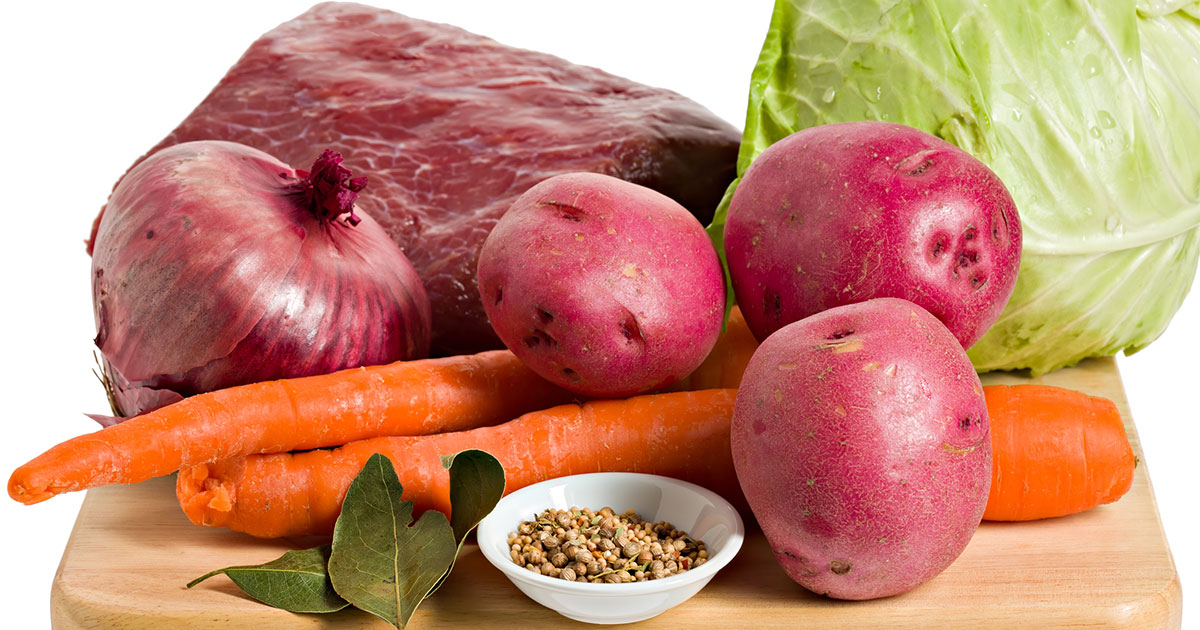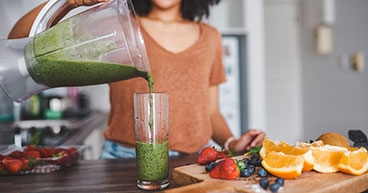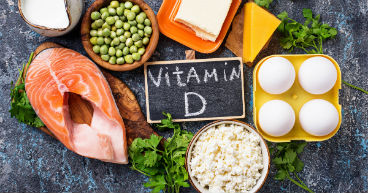
The pubs may be a bit quieter this St. Patrick’s Day, and that’s probably a good thing during a pandemic. Singing loudly in a crowded bar to celebrate the holiday is not recommended if you want to reduce your risk of exposure to COVID-19. And it’s certainly not recommended for cancer patients or their caregivers.
You also may be tempted to indulge in Irish cuisine, a beer (or two) or an Irish whiskey on St. Patrick’s Day. Typically, we’d caution cancer patients against the usual Irish dishes—and we still do, for the standard recipes. After all, traditional dishes like corned beef and cabbage and hearty breakfasts served with pork sausage are often packed with sodium, fat and starch.
But with a few substitutions, you can sample some of Ireland’s most authentic fare—and still stay on a nutritious eating plan.
“More people are cooking at home during the pandemic,” says Carolyn Lammersfeld, Vice President of Integrative Care Services at Cancer Treatment Centers of America® (CTCA). “St. Patrick’s Day may be a good time to experiment with new recipes and new ingredients for healthy Irish cuisine. Like a stew or soup loaded with vegetables and small pieces of lean meat. Or perhaps a healthy fish dish.”
Keep it green
Eat this: Lean into the green theme and create meals with avocado, fresh herbs, cucumber and kale. You could start the day with an avocado and banana smoothie, for example, or baked eggs with avocado and arugula. You could lunch on falafel with an avocado tahini, or baked chicken with pesto. Try snacking on kiwi, mint chocolate chip frozen yogurt and pistachios.
Not that: Avoid heavily processed foods with green food coloring. And steer clear of the green beer.
Have some healthy potatoes
Eat this: Potatoes are rich in potassium and vitamin C; baking, broiling or steaming spuds will help bring out their natural flavors. Sweet potatoes or yams may be good alternatives. Sweet potatoes are naturally high in fiber, as well as vitamin A and vitamin C.
Not that: Try to avoid meals loaded with white bread, white potatoes and butter.
Ease up on the corned beef; load up on cabbage
Eat this: Cabbage, which is loaded with fiber and other nutrients, is a cruciferous vegetable—greater consumption of this type of produce is linked to a lower risk of some cancers. Consider preparing the vegetables by steaming them for three to four minutes until crisp. Avoid overcooking them, since it would destroy the beneficial enzymes involved in the body’s natural detoxification system.
Not that: Corned beef. Or at least limit your portion to no more than the size of a deck of cards. The American Institute for Cancer Research and the World Health Organization both classify processed meats as unhealthy.
Great day for a healthy libation
Drink this: Tea, in moderation. Traditional Irish tea is a great addition to any Irish celebration and can fit in most dietary guidelines for patients. But be mindful of the amount of caffeine consumed and the additions to your tea, such as milk, honey or sugar.
Not that: Skip the whiskey, stout beer or other alcoholic beverages that are often part of St. Patrick’s Day celebrations—they may interact with some of the medication you’re taking.
If you’re considering imbibing something stronger than Irish tea on the holiday, talk to your doctor ahead of time and drink plenty of water to stay hydrated. If you do end up over-indulging on food and drink, it’s important to return to a healthy routine as soon as you can.
“And it’s always a good idea to try to fit in some activity on a holiday,” Lammersfeld says. “Maybe even a little Irish jig?”


